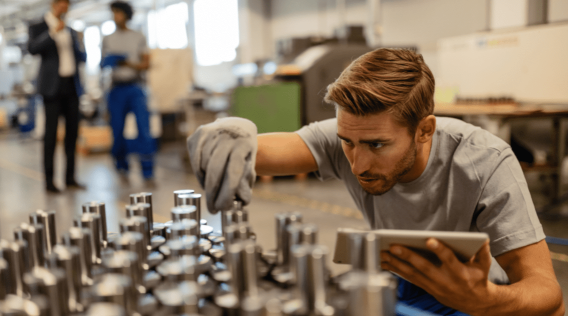Prototype Manufacturing: Transforming Ideas into Reality
In today\’s fast-paced and ever-evolving world, innovation and creativity have become crucial for businesses to stay ahead of the competition. The ability to transform ideas into tangible products and services has become a key factor in determining the success of a company. This is where prototype manufacturing plays a vital role.
Prototype manufacturing is the process of creating a working model or prototype of a product before it goes into mass production. It allows designers, engineers, and manufacturers to test and refine their ideas, ensuring that the final product meets the desired specifications and requirements. Whether it is a new technological gadget, a groundbreaking medical device, or a revolutionary automotive part, prototype manufacturing plays a critical role in bringing these ideas to life.
The first step in prototype manufacturing is the design phase. Designers and engineers work closely together to conceptualize the product and create detailed drawings or computer-aided designs (CAD). These designs serve as the blueprint for the prototype and provide a clear vision of what the final product will look like. During this phase, various factors such as materials, dimensions, and functionality are taken into consideration to ensure that the prototype accurately represents the intended product.
Once the design phase is complete, the next step is selecting the appropriate manufacturing method. There are several techniques available, depending on the complexity and requirements of the product. Some common manufacturing methods include 3D printing, CNC machining, and injection molding. Each method has its advantages and limitations, and the choice depends on factors such as cost, speed, and accuracy.
3D printing, also known as additive manufacturing, is a popular choice for prototype manufacturing. It involves creating a physical object layer by layer using a digital model. 3D printing allows for quick and cost-effective production of prototypes, making it ideal for testing and iterating designs. It enables designers to make adjustments and improvements easily before moving on to mass production.
CNC machining, on the other hand, is a subtractive manufacturing process that involves cutting, drilling, and shaping a solid block of material to create the desired prototype. It is suitable for creating high-precision prototypes with complex geometries. CNC machining offers a wide range of materials to choose from, including metals, plastics, and composites, ensuring that the prototype closely resembles the final product in terms of both form and function.
Injection molding is another commonly used manufacturing method for prototypes. It involves injecting molten material into a mold cavity, allowing it to cool and solidify into the desired shape. Injection molding is best suited for prototypes that require large quantities and have consistent geometries. It provides a cost-effective solution for mass production, as the molds can be reused to create identical parts.
Once the prototype is manufactured, it undergoes rigorous testing and evaluation. This ensures that the product functions as intended and meets the desired performance standards. Testing may include functionality tests, durability tests, and user experience evaluations. Any necessary adjustments or refinements are made based on the test results, ensuring that the final product meets the highest quality standards.
Prototype manufacturing not only helps businesses refine their products but also allows them to showcase their ideas to potential investors and customers. A well-executed prototype can effectively communicate the product\’s features and benefits, generating interest and excitement. It provides a tangible representation of the innovation and expertise behind the product, instilling confidence in its potential success.
In conclusion, prototype manufacturing plays a crucial role in transforming ideas into reality. It enables businesses to test, refine, and perfect their products before they are mass-produced. With the advancements in technology and manufacturing techniques, prototype manufacturing has become more accessible and cost-effective, making it an essential step in the product development process. By investing in prototype manufacturing, businesses can increase their chances of success, bringing innovative and groundbreaking products to the market.
-

- Marco de pantalla LED de fundición a presión de aleación de magnesio
-

- Customized foundry products high precision die-casting parts for e-bike integrated frame
-

- Horquilla rígida de aleación de magnesio para bicicleta, piezas de metal de fundición a presión personalizadas
-

- Cubierta de la carcasa del portátil C
-

- Rueda de bicicleta de piezas de fundición de aleación de magnesio con mecanizado CNC y acabado de superficie
-

- Rueda de fundición a presión de aleación de magnesio para ebike

 0086-750-5616188
0086-750-5616188 +86 13392089688
+86 13392089688 sales@zhongmei-tech.com
sales@zhongmei-tech.com







